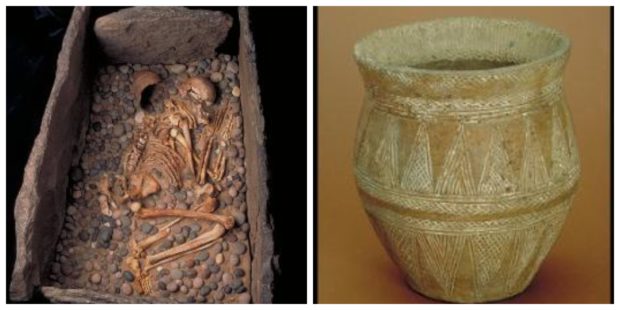A new television show will tell the story of the Beaker People who lived in the north and north-east around 4,000 years ago.
An array of items from Aberdeen University’s archives will be used to shine a light on the lives of the ancient people of Europe.
The latest instalment of Channel 4’s The Bone Detectives will draw upon the 80 or so skeletons in the collection and the items in which they were buried.
The ‘Beaker People’, as they have been called, are known as such because they were buried with distinctive pots known as beakers.
Studies show that they lived between 2400 and 1800 BC and were part of a phenomenon spread across the European continent.
Aberdeen University’s head of museums and special collections, Neil Curtis, said: “The north-east of Scotland was one the areas that had very strong connections with the European Beaker phenomenon.
“On top of that, their burial in stone cists protected them for thousands of years, until they were discovered by farming, road and house building.
“The strong links between the university’s medical school and its museum meant anatomists were well-placed to collect, study and curate the skeletons and other finds.”
A woman whose bones were found in a grave cut into solid bedrock at Achavanich in Caithness in 1987 will feature in the new documentary.
Research showed that the woman, know as Ava, was descended from European migrants who arrived in Britain generations before she was born.
She will be compared to a man who was buried near Oyne, Aberdeenshire, on the farm of Newlands.
As well as a beaker, he was buried with an item which has been identified as an archer’s wrist-guard
The university museum’s Leverhulme Trust “Beakers and Bodies Project” has in recent years identified a particular style of beaker found only in Buchan and radiocarbon-dated almost all the skeletons from the north-east.
The Bone Detectives is expected to air during the summer.
